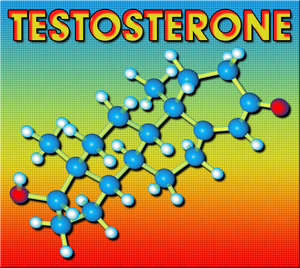Introduction to HGH and Its Importance
Human Growth Hormone (HGH) plays a pivotal role in the development and maintenance of the human body. Particularly in American males, HGH is crucial for muscle growth, bone density, and overall metabolic health. As men age, maintaining optimal levels of HGH becomes increasingly important for sustaining vitality and well-being.
Understanding Cortisol and Its Role in Stress
Cortisol, often referred to as the "stress hormone," is produced by the adrenal glands in response to stress. While cortisol is essential for managing short-term stress and regulating various bodily functions, chronic elevation of cortisol levels can lead to detrimental health effects. In American males, who often face high levels of stress due to work, family, and societal pressures, understanding the interplay between cortisol and HGH is crucial.
The Mechanism of Cortisol's Inhibition on HGH
When the body is under stress, cortisol levels rise, triggering a cascade of physiological responses aimed at managing the stressor. However, this increase in cortisol can directly inhibit the secretion of HGH. The mechanism involves cortisol's impact on the hypothalamus and pituitary gland, which are responsible for the production and release of HGH. Elevated cortisol levels can suppress the pulsatile release of HGH, leading to reduced overall levels in the body.
Clinical Implications for American Males
For American males, the clinical implications of cortisol-induced HGH suppression are significant. Reduced HGH levels can lead to decreased muscle mass, increased fat accumulation, and diminished bone density. These effects can contribute to a range of health issues, including obesity, cardiovascular disease, and osteoporosis. Furthermore, the psychological impact of chronic stress and low HGH levels can exacerbate conditions such as depression and anxiety, creating a vicious cycle of stress and hormonal imbalance.
Strategies to Mitigate Cortisol's Impact on HGH
To counteract the inhibitory effects of cortisol on HGH, American males can adopt several strategies. Regular physical exercise, particularly resistance training, has been shown to boost HGH levels while also reducing stress. Adequate sleep is another critical factor, as sleep deprivation can elevate cortisol levels and further suppress HGH. Additionally, mindfulness practices such as meditation and yoga can help manage stress and promote a healthier hormonal balance.
Nutritional Considerations
Diet plays a crucial role in managing cortisol and supporting HGH production. American males should focus on a balanced diet rich in protein, healthy fats, and complex carbohydrates. Certain nutrients, such as magnesium and vitamin D, have been linked to improved HGH levels and reduced cortisol. Supplementing with these nutrients, under the guidance of a healthcare professional, may be beneficial for those struggling with chronic stress and low HGH.
The Role of Medical Intervention
In cases where lifestyle modifications are insufficient, medical intervention may be necessary. Hormone replacement therapy (HRT) can be considered for individuals with clinically low HGH levels. However, HRT should be approached with caution and under strict medical supervision due to potential side effects and long-term implications. American males should consult with endocrinologists to explore the suitability of HRT and other therapeutic options.
Conclusion: Balancing Stress and HGH for Optimal Health
The relationship between cortisol and HGH is a critical consideration for American males striving for optimal health. By understanding how chronic stress can inhibit HGH production and adopting strategies to manage cortisol levels, men can enhance their overall well-being. Through a combination of lifestyle adjustments, nutritional support, and, when necessary, medical intervention, American males can mitigate the impact of stress on their hormonal health and maintain vitality throughout their lives.
Contact Us Today For A Free Consultation

- Human Growth Hormone and Sleep: Enhancing HGH Production in American Males [Last Updated On: February 24th, 2025] [Originally Added On: February 24th, 2025]
- The Enigma of Biological Alchemy: Decoding the Science Behind Human Growth Hormone [Last Updated On: February 25th, 2025] [Originally Added On: February 25th, 2025]
- Revisiting the Essence of the Human Growth Hormone: A Lifelong Catalyst of Growth and Development [Last Updated On: February 26th, 2025] [Originally Added On: February 26th, 2025]
- Deciphering the Mystique: A Comprehensive Evaluation of HGH and Anti-Aging [Last Updated On: February 27th, 2025] [Originally Added On: February 27th, 2025]
- Unlocking The Mysteries of the Human Growth Hormone: An Indispensable Architect of The Human Body [Last Updated On: February 28th, 2025] [Originally Added On: February 28th, 2025]
- Unraveling the Enigma: An Insight into the Human Growth Hormone [Last Updated On: February 28th, 2025] [Originally Added On: February 28th, 2025]
- Decoding Life's Blueprint: Exploring the Dynamics of Human Growth Hormone [Last Updated On: March 1st, 2025] [Originally Added On: March 1st, 2025]
- Interplay Between Human Growth Hormone and Other Hormones: A Harmonious Symphony [Last Updated On: March 2nd, 2025] [Originally Added On: March 2nd, 2025]
- Exploring the Multifaceted Role of Human Growth Hormone in Enhancing Organ Function and Preventing Age-Related Diseases [Last Updated On: March 3rd, 2025] [Originally Added On: March 3rd, 2025]
- Expanding Applications of Growth Hormone Therapies in Modern Medicine [Last Updated On: March 4th, 2025] [Originally Added On: March 4th, 2025]
- Understanding Human Growth Hormone: Natural vs. Synthetic Approaches [Last Updated On: March 5th, 2025] [Originally Added On: March 5th, 2025]
- Optimizing Health and Recovery: The Role of HGH in American Males [Last Updated On: March 6th, 2025] [Originally Added On: March 6th, 2025]
- Unlocking the Power of Human Growth Hormone for Muscle Mass and Performance Enhancement [Last Updated On: March 7th, 2025] [Originally Added On: March 7th, 2025]
- Comprehensive Guide to HGH Deficiency in American Men: Causes, Symptoms, Diagnosis, and Treatment [Last Updated On: March 8th, 2025] [Originally Added On: March 8th, 2025]
- The Impact of Human Growth Hormone (HGH) on Men's Muscle, Fat, and Energy Levels [Last Updated On: March 9th, 2025] [Originally Added On: March 9th, 2025]
- Unleashing Your Potential: Enhancing Natural Human Growth Hormone through Diet [Last Updated On: March 12th, 2025] [Originally Added On: March 12th, 2025]
- Maximizing Athletic Excellence: The Role of Human Growth Hormone in Performance Enhancement [Last Updated On: March 14th, 2025] [Originally Added On: March 12th, 2025]
- Unlocking the Secrets of Youth: The Evolution of HGH Therapy in Anti-Aging Medicine [Last Updated On: March 13th, 2025] [Originally Added On: March 13th, 2025]
- Unleashing the Power of Exercise: How Workouts Boost Human Growth Hormone in American Males [Last Updated On: March 14th, 2025] [Originally Added On: March 14th, 2025]
- Unlocking Your Body's Potential: Lifestyle Strategies to Boost Natural HGH Levels in American Males [Last Updated On: March 15th, 2025] [Originally Added On: March 15th, 2025]
- Human Growth Hormone: Benefits, Risks, and the Dark Side of Abuse in American Males [Last Updated On: March 18th, 2025] [Originally Added On: March 18th, 2025]
- Human Growth Hormone: Legal, Ethical Issues in Sports and Medicine [Last Updated On: March 18th, 2025] [Originally Added On: March 18th, 2025]
- HGH Market Trends, Costs, and Implications for American Males [Last Updated On: March 19th, 2025] [Originally Added On: March 19th, 2025]
- HGH's Cellular Impact: Growth, Muscle, Bone Health, and Therapeutic Potential for American Males [Last Updated On: March 19th, 2025] [Originally Added On: March 19th, 2025]
- HGH's Potential Cardiovascular Benefits for American Males: Heart Health and Safety Considerations [Last Updated On: March 19th, 2025] [Originally Added On: March 19th, 2025]
- Human Growth Hormone: From Discovery to Clinical Impact on American Males [Last Updated On: March 20th, 2025] [Originally Added On: March 20th, 2025]
- HGH in Hormone Replacement Therapy: Benefits, Risks, and Longevity for American Males [Last Updated On: March 20th, 2025] [Originally Added On: March 20th, 2025]
- Human Growth Hormone Therapy: Enhancing Growth in American Male Children [Last Updated On: March 21st, 2025] [Originally Added On: March 21st, 2025]
- HGH's Role in Immunity and Health for American Males: Strategies and Insights [Last Updated On: March 21st, 2025] [Originally Added On: March 21st, 2025]
- HGH Decline in Aging American Males: Impacts and Management Strategies [Last Updated On: March 21st, 2025] [Originally Added On: March 21st, 2025]
- Recombinant HGH: Enhancing Health and Vitality in American Males [Last Updated On: March 21st, 2025] [Originally Added On: March 21st, 2025]
- HGH's Impact on Brain Function and Cognitive Health in American Males [Last Updated On: March 21st, 2025] [Originally Added On: March 21st, 2025]
- HGH's Role in Bone Health for American Males: Growth, Density, and Healing [Last Updated On: March 22nd, 2025] [Originally Added On: March 22nd, 2025]
- Innovative HGH Delivery Systems: Enhancing Therapy for American Males [Last Updated On: March 23rd, 2025] [Originally Added On: March 23rd, 2025]
- HGH in Women: Benefits, Risks, and Ethical Considerations for American Men [Last Updated On: March 23rd, 2025] [Originally Added On: March 23rd, 2025]
- Acromegaly in American Males: Symptoms, Diagnosis, and Management Strategies [Last Updated On: March 23rd, 2025] [Originally Added On: March 23rd, 2025]
- HGH's Role in Enhancing Skin Health for American Males: A Comprehensive Guide [Last Updated On: March 23rd, 2025] [Originally Added On: March 23rd, 2025]
- HGH Therapy and Lifestyle: Enhancing Vitality in Aging American Men [Last Updated On: March 23rd, 2025] [Originally Added On: March 23rd, 2025]
- HGH in Regenerative Medicine: Enhancing Health for American Males [Last Updated On: March 23rd, 2025] [Originally Added On: March 23rd, 2025]
- HGH's Dual Impact on Muscle Gain and Fat Loss in American Males [Last Updated On: March 23rd, 2025] [Originally Added On: March 23rd, 2025]
- HGH and IGF-1: Key Roles in Male Health, Aging, and Performance [Last Updated On: March 24th, 2025] [Originally Added On: March 24th, 2025]
- HGH Therapy: Transforming Chronic Illness Management for American Males [Last Updated On: March 24th, 2025] [Originally Added On: March 24th, 2025]
- HGH's Role in Enhancing Bone Density and Preventing Osteoporosis in American Males [Last Updated On: March 24th, 2025] [Originally Added On: March 24th, 2025]
- HGH's Role in Cellular Regeneration and Health for American Males [Last Updated On: March 24th, 2025] [Originally Added On: March 24th, 2025]
- HGH Therapies and Research: Advances and Future for American Males [Last Updated On: March 24th, 2025] [Originally Added On: March 24th, 2025]
- HGH: Boosting Energy, Performance, and Well-being in American Males [Last Updated On: March 24th, 2025] [Originally Added On: March 24th, 2025]
- Debunking HGH Myths: Facts on Growth Hormone for American Males [Last Updated On: March 24th, 2025] [Originally Added On: March 24th, 2025]
- Environmental Factors Impacting HGH Production in American Males: Sleep, Diet, and Stress [Last Updated On: March 25th, 2025] [Originally Added On: March 25th, 2025]
- HGH's Role in Enhancing Post-Surgical Recovery for American Males [Last Updated On: March 25th, 2025] [Originally Added On: March 25th, 2025]
- HGH's Impact on Organ Systems in American Males: Beyond Muscle and Bone [Last Updated On: March 25th, 2025] [Originally Added On: March 25th, 2025]
- HGH's Role in Enhancing Recovery for American Males: Strategies and Science [Last Updated On: March 25th, 2025] [Originally Added On: March 25th, 2025]
- Optimizing HGH Release: Sleep Strategies for American Males' Health [Last Updated On: March 26th, 2025] [Originally Added On: March 26th, 2025]
- Obesity's Impact on HGH Levels in American Males: Causes and Solutions [Last Updated On: March 26th, 2025] [Originally Added On: March 26th, 2025]
- Boosting HGH Naturally: Intermittent Fasting Benefits for American Males [Last Updated On: March 26th, 2025] [Originally Added On: March 26th, 2025]
- HGH Therapy Success Stories: Enhancing Life Quality in American Men [Last Updated On: March 26th, 2025] [Originally Added On: March 26th, 2025]
- HGH in Sports: Performance Benefits vs. Ethical Dilemmas and Health Risks [Last Updated On: March 27th, 2025] [Originally Added On: March 27th, 2025]
- HGH Therapy Benefits and Risks for Men's Holistic Health [Last Updated On: March 27th, 2025] [Originally Added On: March 27th, 2025]
- Human Growth Hormone: Roles in Growth, Metabolism, and Aging for American Males [Last Updated On: March 27th, 2025] [Originally Added On: March 27th, 2025]
- HGH's Impact on Muscle Recovery and Athletic Performance in American Males [Last Updated On: March 27th, 2025] [Originally Added On: March 27th, 2025]
- Genetics and Family History: Key Influences on Human Growth Hormone Production [Last Updated On: March 27th, 2025] [Originally Added On: March 27th, 2025]
- Optimizing HGH for Growth and Performance in American Males: A Holistic Approach [Last Updated On: March 27th, 2025] [Originally Added On: March 27th, 2025]
- HGH Levels in American Males: Diagnostic Tests and Health Implications [Last Updated On: March 27th, 2025] [Originally Added On: March 27th, 2025]
- HGH's Role in Wound Healing for American Males: Benefits and Considerations [Last Updated On: March 27th, 2025] [Originally Added On: March 27th, 2025]
- Human Growth Hormone: Exploring Its Impact on Longevity in American Males [Last Updated On: March 27th, 2025] [Originally Added On: March 27th, 2025]
- HGH's Role in Cognitive Enhancement for American Males: Benefits, Risks, and Ethics [Last Updated On: March 27th, 2025] [Originally Added On: March 27th, 2025]
- Managing HGH Deficiency in American Males: Modern Treatments and Lifestyle Strategies [Last Updated On: March 28th, 2025] [Originally Added On: March 28th, 2025]
- HIIT Boosts HGH in American Males: Enhancing Health and Fitness [Last Updated On: March 28th, 2025] [Originally Added On: March 28th, 2025]
- HGH Supplements: Efficacy, Risks, and Lifestyle Impact for American Males [Last Updated On: March 29th, 2025] [Originally Added On: March 29th, 2025]
- HGH Integration: Enhancing Vitality in American Men Through Synergistic Health Strategies [Last Updated On: March 30th, 2025] [Originally Added On: March 30th, 2025]
- HGH Innovations: Enhancing Health and Performance in American Males [Last Updated On: March 31st, 2025] [Originally Added On: March 31st, 2025]
- Mindfulness and Meditation: Boosting HGH Levels in American Men by Reducing Stress [Last Updated On: March 31st, 2025] [Originally Added On: March 31st, 2025]
- Lifestyle Choices Impacting HGH Levels and Hormonal Balance in American Males [Last Updated On: April 1st, 2025] [Originally Added On: April 1st, 2025]
- HGH in Sports: Ethical Dilemmas, Health Risks, and the Impact on American Male Athletes [Last Updated On: April 2nd, 2025] [Originally Added On: April 2nd, 2025]
- HGH's Impact on Cardiovascular Health in American Males: Benefits and Risks [Last Updated On: April 2nd, 2025] [Originally Added On: April 2nd, 2025]
- HGH's Impact on Body Composition: Fat Reduction and Muscle Growth in American Males [Last Updated On: April 6th, 2025] [Originally Added On: April 6th, 2025]
- HGH Therapy: Benefits, Side Effects, and Risks for American Males [Last Updated On: April 6th, 2025] [Originally Added On: April 6th, 2025]
- HGH's Impact on Liver Health and Detoxification in American Males [Last Updated On: April 9th, 2025] [Originally Added On: April 9th, 2025]
- HGH: Enhancing Vitality and Health in American Males Through Tissue Renewal [Last Updated On: April 10th, 2025] [Originally Added On: April 10th, 2025]
- HGH Replacement Therapy: Benefits, Risks, and Considerations for American Males [Last Updated On: April 10th, 2025] [Originally Added On: April 10th, 2025]
- HGH Therapy: Costs, Benefits, and Risks for American Males [Last Updated On: April 10th, 2025] [Originally Added On: April 10th, 2025]
Word Count: 575



















